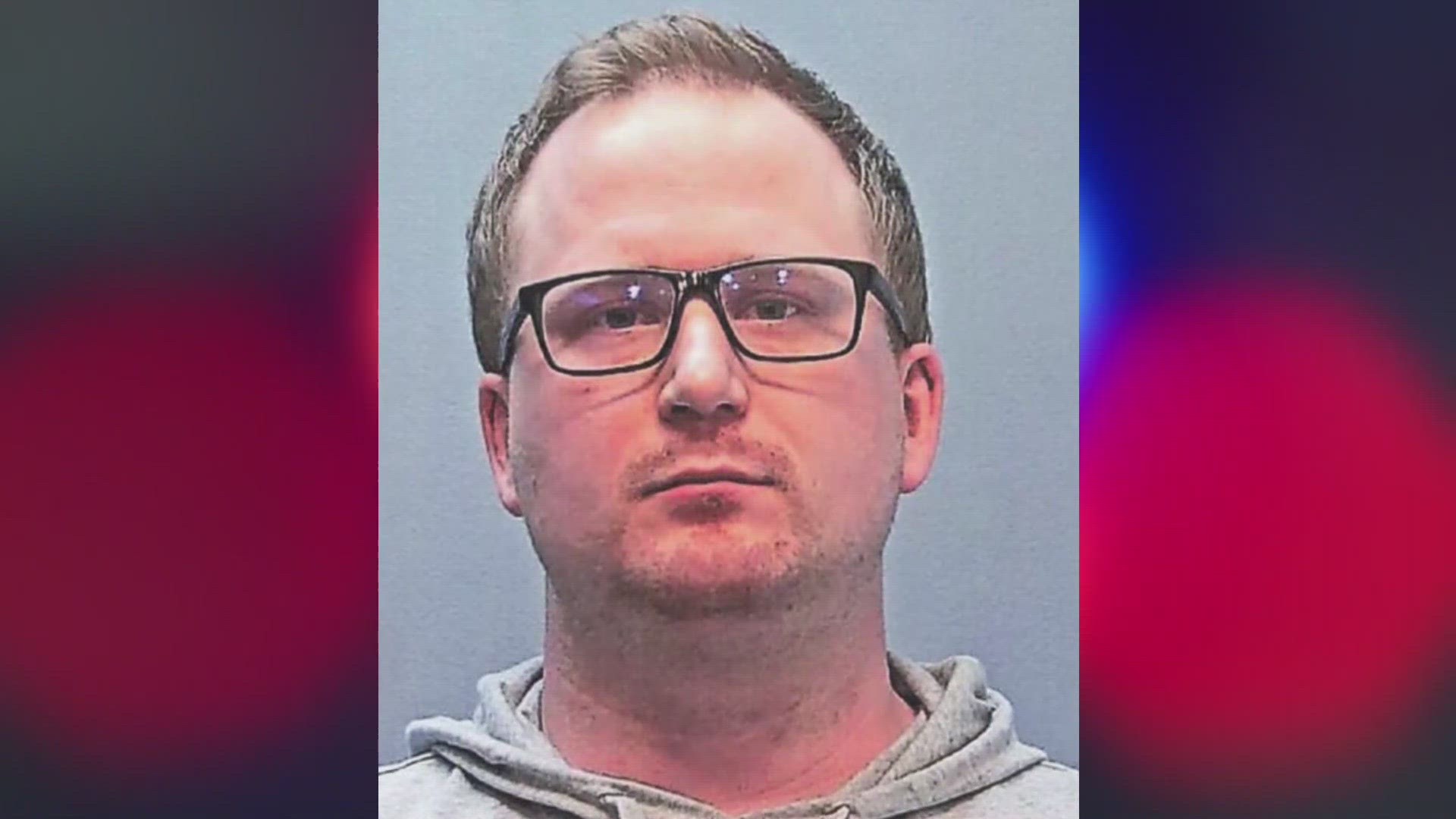BRIGHTON, Colo. — Aurora Police officer Nathan Woodyard was trained at least five times in the potentially dangerous neck hold he used on Elijah McClain.
That detail was laid out Wednesday during hours of testimony in the officer’s trial on a single count of reckless manslaughter.
The so-called “carotid” hold is at the center of the case against Woodyard, one of five first responders indicted in the August 2019 death of McClain. The hold involves using the biceps and forearm to squeeze the arteries that deliver blood to the brain with a goal of gaining compliance.
It can also have serious health consequences, and the potential danger is underscored by how much time is spent on training officers on how to use it – and what to do afterward.
“There’s like 130 to 180 techniques on a list that an officer needs to know in our academy,” Aurora Police Sgt. Kevin Smyth, who oversees the department’s training program, testified Wednesday. “And so, depending on those, if we were to break it down to ‘how much time do you spend on this one, how much time do you spend on this one,’ we would spend more time on the carotid than any one particular technique in the academy.”
Woodyard was the first officer to confront McClain after a 911 caller reported he was wearing a mask and seemed “sketchy.” He was quickly joined by two other officers, Randy Roedema and Jason Rosenblatt, and the three of them restrained McClain during a struggle.
At one point, Roedema said that McClain had tried to grab Rosenblatt’s gun, and the struggle intensified. Rosenblatt attempted a carotid hold but was not successful. Then Woodyard did it, rendering McClain unconscious.
Prosecutors allege that was the event that started a cascade of medical problems for McClain – he suffered low oxygen to his brain and a surge of acid in his body, then vomited – and inhaled some of it.
Despite repeatedly saying he could not breathe, the officers – and later paramedics – did not check his vital signs or take other steps to assess his medical condition. A dose of the sedative ketamine, administered by paramedics, has been blamed for ultimately causing his death.
During nearly 4½ hours of testimony, Sgt. Smyth stressed that the department considers training in the carotid hold so important that officers undergo it annually and have to score 100% on a test.
Part of that is because it can have catastrophic effects, including stroke and even death.
“If it’s done improperly, the risks go much higher,” Smyth said. “And so, because of those risks, we have a different standard for testing than we do in other – in other techniques. Techniques like putting a handcuff on, or, you know, making sure you’re using the correct hand positioning in a search – those … have less risk if you do it incorrectly.
“With the carotid, we want to make sure that it’s done exactly the way it’s trained every time.”
Prosecutors have alleged that Woodyard failed to follow that training – particularly when it came to what officers are supposed to do after using the hold. That includes checking vital signs, gauging the person’s coherence by asking questions, and treating any sign a person is having trouble breathing as a medical emergency.
Under cross-examination from defense attorney Andrew Ho, Smyth acknowledged that part of the training tells officers that a doctor concluded that when done properly the hold is “safe and effective.” Smyth also testified that it is up to paramedics – not law enforcement officers – to determine what kind of medical care a person needs.
McClain died three days after the Aug. 24, 2019, confrontation.
Then-Adams County District Attorney Dave Young cleared the officers of any criminal wrongdoing. Later, Gov. Jared Polis appointed Attorney General Phil Weiser as special prosecutor in the case, and he took evidence to a grand jury. That led to indictments against the three officers – Rosenblatt, Roedema, and Woodyard – and two paramedics.
On Oct. 12, a different jury acquitted Rosenblatt but found Roedema guilty of criminally negligent homicide and third-degree assault.
The paramedics, Jeremy Cooper and Peter Cichuniec, are scheduled to go on trial in late November.
Sentencing for Roedema is scheduled for Jan. 5. He had been suspended without pay since being indicted in the case but was fired after being convicted.
Rosenblatt was fired earlier for responding “ha ha” to a photo other officers took appearing to administer a carotid hold on one another at the scene of McClain’s death.
Woodyard remains suspended without pay pending the outcome of this case. If convicted, he could face up to six years in prison.
The paramedics also are suspended without pay while they await trial.
SUGGESTED VIDEOS: Elijah McClain death

